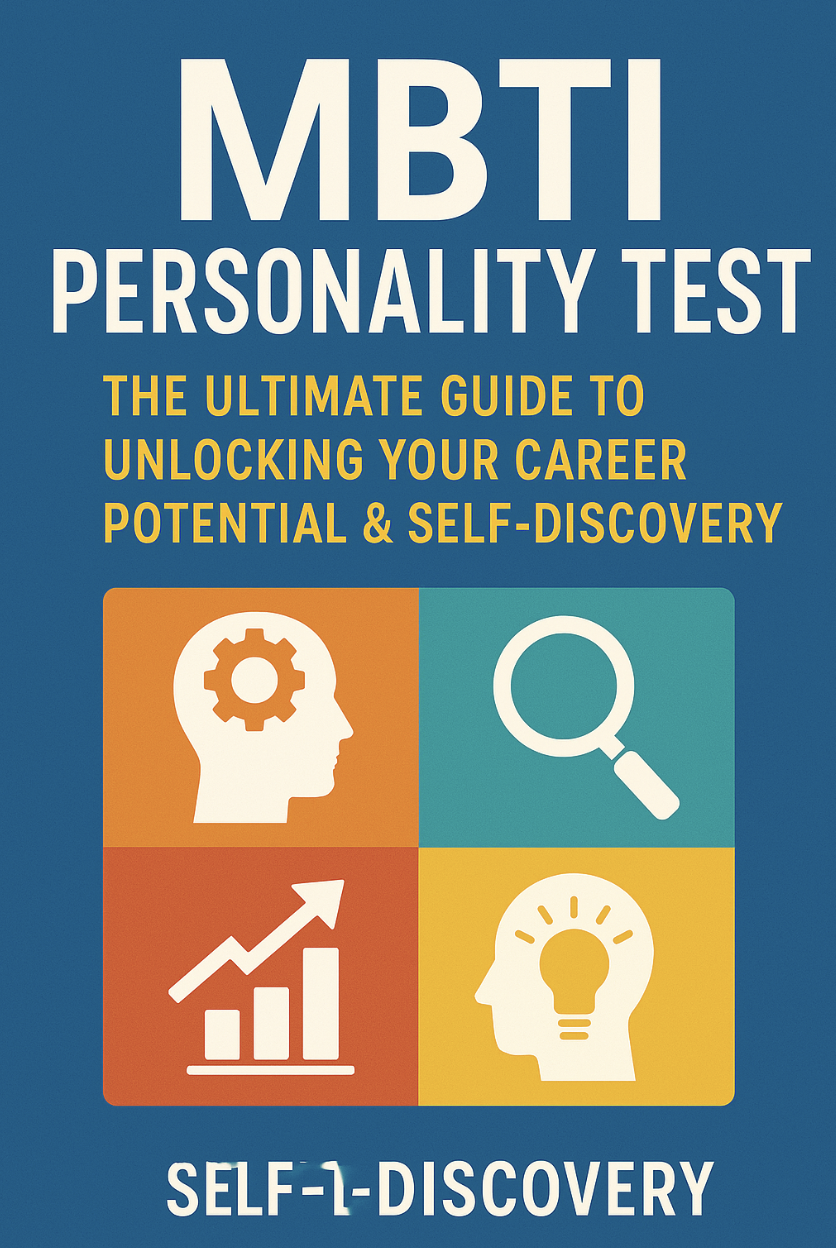MBTI Personality Test: The Ultimate Guide to Unlocking Your Career Potential & SelfDiscovery

What Is the MBTI Test?
The Myers-Briggs Type Indicator (MBTI) is one of the most widely used personality assessments in the world. Developed by Katharine Cook Briggs and her daughter Isabel Briggs Myers, the test is based on Carl Jung’s theory of psychological types. The full version consists of 93 questions (though shorter versions exist), each probing behavioral and cognitive preferences.
Your responses categorize you into one of 16 personality types, determined by four key dichotomies:
Extraversion (E) vs. Introversion (I) – Where you draw energy. Extraverts thrive in social settings, while introverts recharge through solitude.
Sensing (S) vs. Intuition (N) – How you process information. Sensors focus on concrete facts, while intuitives prefer abstract theories.
Thinking (T) vs. Feeling (F) – How you make decisions. Thinkers prioritize logic, while feelers weigh emotional impact.
Judging (J) vs. Perceiving (P) – Your approach to structure. Judgers prefer planning, while perceivers enjoy spontaneity.
Your final type (e.g., INTJ, ENFP, ISTP) comes with a detailed profile—explaining your strengths, career fits, and even famous people who share your traits (e.g., Einstein as INTP, Oprah as ENFJ).Is the MBTI Test Reliable? The Expert Debate
Despite its popularity, the MBTI faces criticism from psychologists. Here’s a breakdown of the arguments:
Supporters’ Perspective
Practical Application: The test translates Jung’s theories into actionable insights, helping people understand Workplace Dynamics, relationships, and personal growth.
Self-Awareness: It highlights overlooked strengths. For example, an ISTJ might realize their meticulous nature is an asset in project management.
Conflict Resolution: Recognizing differences (e.g., a Thinker vs. Feeler in debates) fosters empathy and clearer communication.
Critics’ Concerns
Low Test-Retest Reliability: Mood and context can skew results. A post-vacation Extravert might test as Introverted after a stressful workday.
Binary Limitations: Human behavior isn’t strictly E or I, T or F—many people fluctuate between traits.
Lack of Scientific Rigor: Unlike the Big Five personality model, the MBTI lacks replicable, large-scale validation.
Barnum Effect: People may unconsciously select aspirational traits rather than honest responses.
How to Use MBTI Wisely: A Pro’s Advice
The MBTI isn’t a definitive roadmap but a starting point for reflection. Here’s how to leverage it effectively:
-
- ENTJs (Commanders) excel in leadership roles (e.g., CEOs, entrepreneurs).
- INFJs (Advocates) thrive in counseling, writing, or humanitarian work.
- Use results to explore industries, not rigid job titles.
- ENTJs (Commanders) excel in leadership roles (e.g., CEOs, entrepreneurs).
Relationship Insights
- A Perceiver (P) paired with a Judger (J) can balance spontaneity and structure in partnerships.
- Recognize that Thinkers (T) may offer solutions when Feelers (F) seek emotional support.
- A Perceiver (P) paired with a Judger (J) can balance spontaneity and structure in partnerships.
Avoid Pitfalls
Don’t let results box you in. If you’re an Introvert who enjoys public speaking, embrace the nuance.
Re-test periodically—personality evolves with experience.
Final Verdict: Should You Trust the MBTI?
Yes, with caveats. The test is a tool, not gospel. Its value lies in sparking self-inquiry, not dictating life choices. Pair it with other assessments (e.g., StrengthsFinder, Big Five) for a holistic view.
Key Takeaways:
✅ Use it for: Career brainstorming, team dynamics, personal growth.
❌ Don’t use it for: Rigid self-labeling, hiring decisions, or predicting success.
Ultimately, the MBTI is a mirror—not a prescription. Your uniqueness goes far beyond four letters.




